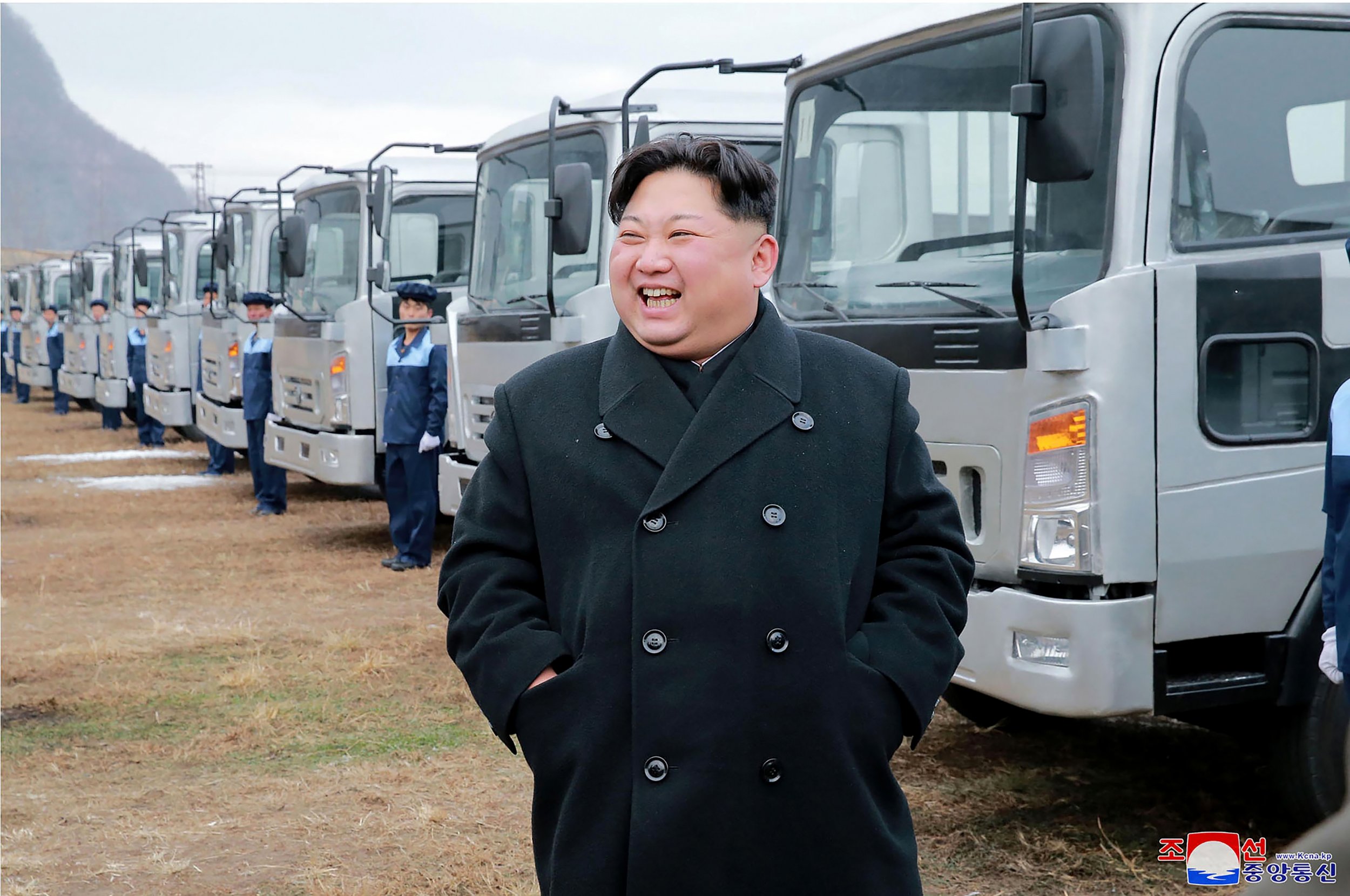
The U.S. has a microwave weapon that could fry the electronics of North Korea's missiles and prevent them from launching, according to a weapons development official.
The weapons, known as CHAMPs, have a range of some 700 miles and can use microwave energy to bring down electronic systems in enemy territory. The devices are delivered while attached to B-52 bombers.
As a war of words continues to escalate between Pyongyang and Washington, President Donald Trump's administration is considering all possibilities in the event of an outbreak of conflict with the rogue state.
Officials have become so concerned about North Korea's missile launches that the microwave weapons were discussed at an August White House meeting on North Korea, two officials told NBC News.
The CHAMP, which began development in 2009, is publicly known to have been tested only once, in 2012; other trials have been kept top secret. But the weapon is now operational.
The high-powered microwave weapon sends electropulses to the enemy's electronic devices, scrambling their circuitry.
"These high-powered microwave signals are very effective at disrupting and possibly disabling electronic circuits," Mary Lou Robinson, chief of weapons development at the Air Force Research Laboratory in Albuquerque, told NBC News.
The U.S. military has used such technology previously in Afghanistan and Iraq, where it has fought protracted wars against radical Islamist insurgents, to disable drones and improvised explosive devices.
If successful, the weapons will be able to knock out the many electronics that fill a missile control center. The precise details of how close the weapon would have to come to the electronics remains classified for fear of giving Kim Jong Un's regime an advantage.
North Korea fired an intercontinental ballistic missile that landed in the Sea of Japan last week in what was an act of defiance against the Trump administration, the United Nations and its only diplomatic ally, China.
Trump has used the threat of military action against North Korea, coupled with crippling economic sanctions, to try to deter Kim's nuclear ambitions. Last week, Nikki Haley, the U.S.'s ambassador to the U.N., said that if conflict did break out between the two countries, North Korea's regime would be "utterly destroyed."
North Korea called a new South Korean-U.S. military drill that began on Monday a "provocation." The exercise involved thousands of soldiers and more than 200 military aircraft.
Uncommon Knowledge
Newsweek is committed to challenging conventional wisdom and finding connections in the search for common ground.
Newsweek is committed to challenging conventional wisdom and finding connections in the search for common ground.
About the writer
Jack is International Security and Terrorism Correspondent for Newsweek.
Email: j.moore@newsweek.com
Encrypted email: jfxm@protonmail.com
Available on Whatsapp, Signal, Wickr, Telegram, Viber.
Twitter: @JFXM
Instagram: Read more





